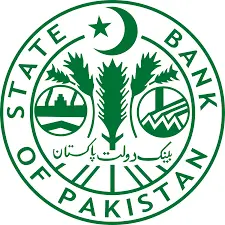Beijing September 22, 2021: Russia is considering a variety of measures to step up tax revenues from its metals and mining sector, including potential corporate income tax increases and a separate tax on steel sales, but the measure policymakers will opt for, or whether they will put in place several as a package, remains to be seen, according to media reports and notes by industry analysts.
From August, when Russia introduced its 15% tax on ferrous and major base metals exports, the government has been working on 2022 tax changes that could uphold additional state budget revenues once the 15% export tax lapses at year-end.
None of the changes under consideration has been made official, but after President Vladimir Putin said in January that Russia would increase the mineral extraction tax, or MET, for the metallurgical industry, this measure was considered the most probable.
The magnitude of the tax hike has not been revealed, but local press reports have indicated this tax rate is likely to rise to 6% and be linked to respective commodities' spot prices. An increase would depend on the commodity. The current MET for iron ore is 3.5%, for instance.
Steelmaking tax called a possibility
It has even emerged that the government could introduce a steelmaking tax, analysts at Moscow-based investment bank VTB Capital said in a note.
An MET analogue for steelmaking, payable as a percentage of a certain benchmark or a fixed payment of Rb 1,000/mt ($13.70/mt) has been proposed, along with a minimal payment of Rb180/mt for iron ore and Rb144/mt for coking coal, according to the note.
Russian steelmakers association Russkaya Stal told S&P Global Platts it was preparing its position on the matter but was not yet ready to share it.
More and more details have been leaked from the government daily for the past week or so and new rumors sometimes negate the old ones, but the true version of tax changes is yet to be unveiled, Andrey Lobazov at Moscow investment company Aton said.
The most recent unofficial news was that a corporate income tax increase is under consideration, too. Being 20% on average, this could potentially go up to 25%-30% depending on the correlation of four factors -- dividends, investments, amortization and capital. The government is allegedly seeking a formula tying in these capital allocations over the last five years. Resulting coefficients -- calculated on a company-by-company basis -- would be applied to the tax rate.
Dividends over development?
The income tax revision proceeds from the assumption that companies have been indulging shareholders' appetite for dividends at the expense of development.
"I cannot say Russian mining and metals companies have underinvested, but over the last five years, some of them have paid more dividends than what they have reinvested in capital assets," Lobazov said.
"The intention is there, but what is not clear is whether the new rates will be applied to only the metals and mining sector or to some other corporates as well, and whether a potential income tax increase is discussed as a substitute for higher mineral extraction tax or whether one will complement the other, to be implemented as a package," the analyst said.
He added that the amount the government is looking to raise for 2022 through one or a combination of measures was between Rb165 billion ($2.2 billion) and Rb350 billion ($4.7 billion).










